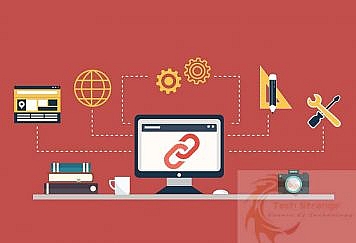In today’s digital age, email marketing has become a crucial tool for businesses to reach out to their customers. However, as email marketing becomes increasingly popular, so do email scams and spam. Email authentication is one of the ways businesses can combat these issues and ensure that their marketing campaigns are legitimate and trustworthy. In this blog, we’ll explore the importance of email authentication for marketing campaigns, and the different methods available to achieve it.
What is Email Authentication?
Email authentication is the process of verifying the legitimacy of an email message. It involves adding digital signatures to email messages to verify that they are not fake or fraudulent. There are several methods of email authentication, including Domain-based Message Authentication, Reporting, and Conformance (DMARC), DomainKeys Identified Mail (DKIM), and Sender Policy Framework (SPF).
DMARC
DMARC is a widely used email authentication protocol that allows senders to specify how their emails should be handled by email receivers. It works by checking both SPF and DKIM authentication results to determine whether or not an email is legitimate. DMARC policies can be set to “none,” “quarantine,” or “reject.” If the DMARC policy is set to “none,” the email receiver will only receive a report about the email’s authenticity. If the policy is set to “quarantine,” the email may be delivered to the receiver’s spam folder. If the policy is set to “reject,” the email will not be delivered at all.
DKIM
DKIM is an email authentication method that uses digital signatures to verify the authenticity of email messages. It works by adding a unique digital signature to each email message that is sent. The signature is created by the sender’s domain and can be verified by the receiver’s domain. If the signature is valid, the email is considered authentic, and the receiver can be confident that it was sent by the sender’s domain.
SPF
SPF is another email authentication protocol that verifies the sender’s IP address against a list of authorized IP addresses. It works by allowing senders to create a list of authorized IP addresses that are allowed to send emails on behalf of their domain. When an email is received, the receiver’s server checks the sender’s IP address against the list of authorized IP addresses. If the IP address matches, the email is considered authentic.
DMARC Checker, SPF Record Check, and DKIM Checker
To ensure that email authentication is set up correctly, it’s essential to use a DMARC checker, SPF record check, and DKIM checker. These tools allow senders to verify that their emails are being authenticated correctly and that they are not being marked as spam or rejected. DMARC checkers, SPF record checkers, and DKIM checkers are widely available online and can be used for free.
The Importance of Email Authentication For Marketing Campaigns
Email authentication is crucial for marketing campaigns for several reasons. First, it helps businesses build trust with their customers. Customers are more likely to open and engage with emails that they know are legitimate and come from a trustworthy source. Email authentication also helps businesses avoid being marked as spam or rejected by email receivers. If an email is marked as spam or rejected, it can hurt the sender’s reputation and reduce the effectiveness of their marketing campaign.
Second, email authentication helps businesses measure the effectiveness of their marketing campaigns. With DMARC, senders can receive reports about the authentication status of their emails. These reports can be used to identify any issues with authentication and to make changes to improve the effectiveness of the marketing campaign.
Final Words
In conclusion, email authentication is an essential tool for businesses to ensure that their marketing campaigns are legitimate and trustworthy. DMARC, DKIM, and SPF are all effective methods of email authentication, and DMARC checkers, SPF record checkers, and DKIM checkers are available online to help businesses verify that their emails are being authenticated correctly. By implementing email authentication, businesses can build trust with their customers, avoid being marked as spam or rejected, and measure the effectiveness of their marketing campaigns. As email marketing continues to be a valuable tool for businesses, implementing email authentication is essential to ensure that their emails are reaching their intended audience and achieving their desired goals.
Follow TechStrange for more!





